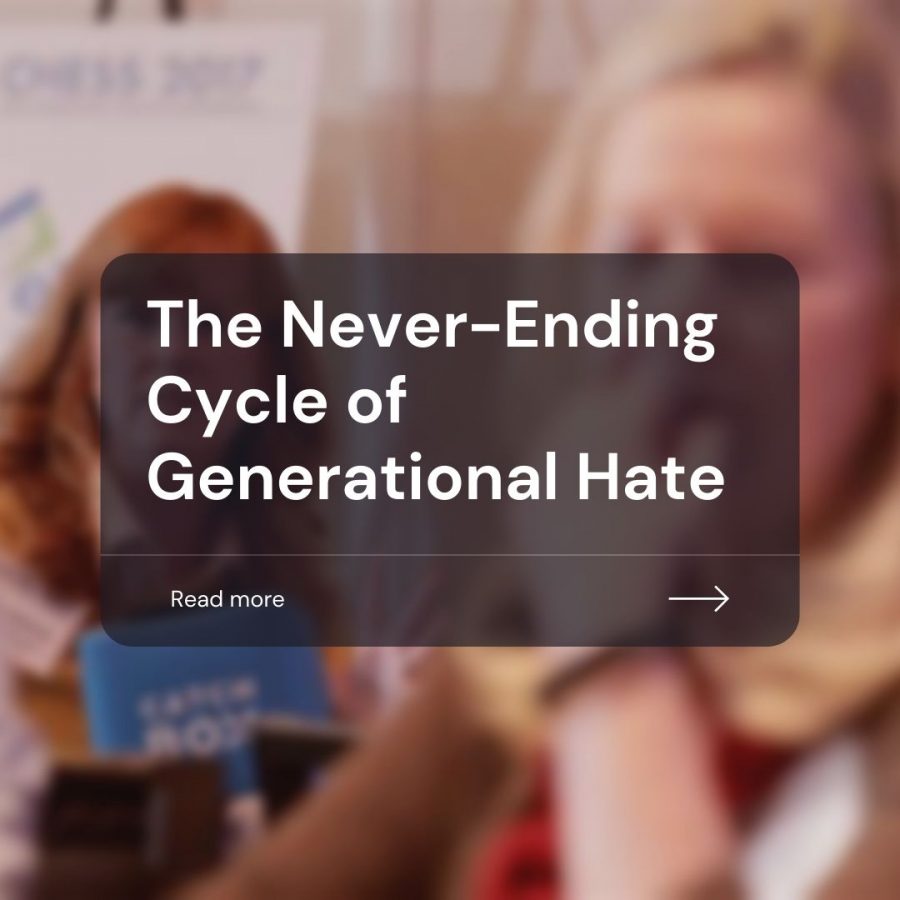The Never-Ending Cycle of Generational Hate
February 26, 2021
Recently there has been a “war” in the social media world that is putting Millennials and Gen Z against each other. While the arguments are only about trends and slang, this arises a bigger issue in the media about the different opinions between each generation. But why does this happen so often, and what makes each generation hate the one following them?
Our generation over the years has faced a lot of ridicule. Whether it’s from the “Tide Pod challenge” or having all our struggles blamed on screen time, the feeling that we as a whole have been the face of a lot of unnecessary hate from those who are older than us.
This doesn’t just happen to Gen Z, of course- Millennials, Gen X, and the generations before them have spent years trying to diffuse the insults that they received growing up. Some of it has come from us, too- just look at the way that “OK boomer” was popularized.
While looking through articles, such as “17 Things Gen Z Does That Millennials Actually Find Really Embarrassing” by Shelby Heinrich, being used to ‘attack’ the generation’s habits, a question arose. Why do the older generations continue to do this, even though they have experienced it firsthand?
The most prominent answer, found, is simply a fear of change. Studies have shown that almost two-thirds of people say that uncertainty about the future worries them. As humans grow older, they will be putting the fate of the world in the hands of those who are still young.
This is terrifying to think about, but our youth have always been the most important parts of the future. The problem with this is not the children, but the adults who can not accept them for trying to make the world better.
Even though the younger generations have shown themselves capable of improving or maintaining the world, the passing down of power makes those who were previously in power feel hostile. The children and grandchildren that the adults so adored developed their own unique mindsets, and when they decide to change the way of living- including the parts that we had loved and accepted- we begin to resent them.
So, when a new age group begins to reject the styles or beliefs that society was used to, the adults begin to belittle them. This is what we are seeing right now during the “Millennials vs. Gen Z” battle. This is also what was happening when Gen X were calling millennials lazy.
This cycle of animosity between different age groups is both exhausting and unnecessary. While some think it’s fine that millennials are defending their skinny jeans and side parts, some would like to remind them that they aren’t defending anything substantial. The shift in trends is just being used as a way for Millennials to insult the generation following them.
At the end of the day, it does not matter if clothes or hairstyle are trending or not- things will always change, and with that means learning to accept the future and all its differences.
Statistic source: https://www.linkedin.com/pulse/what-do-1-3-people-say-change-some-surprising-stats-jim-bright


